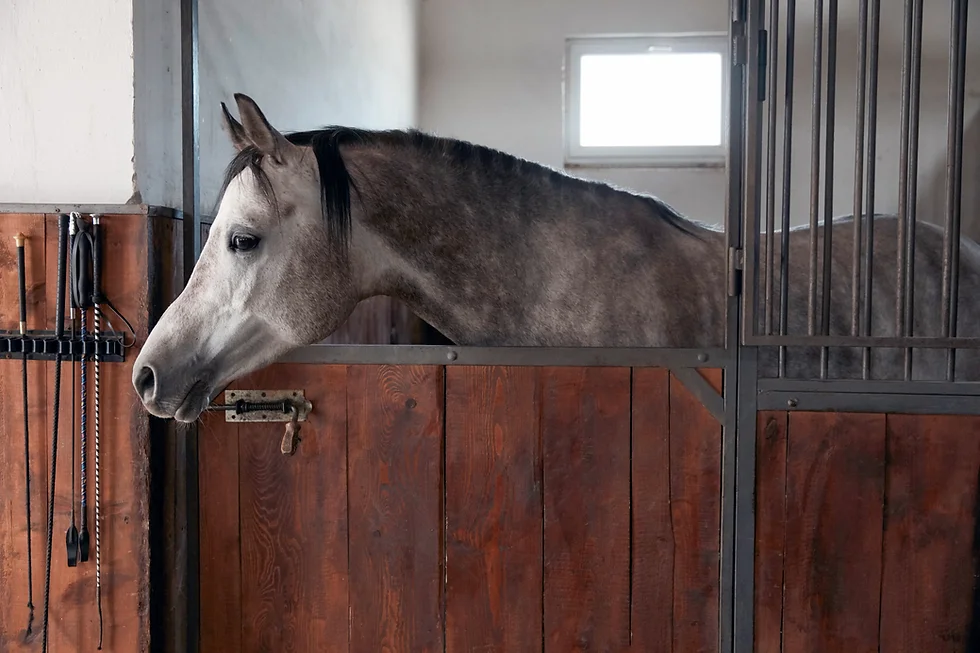Three Complementary Therapies for Horses
Horses, like any other animals, can benefit from various therapies to enhance their well-being, improve performance, and promote recovery from injuries. Complementary therapies, which work alongside traditional veterinary care, can help address physical, mental, and emotional needs. Here, we’ll explore three popular complementary therapies for horses: acupuncture, massage therapy, and aromatherapy.
1. Acupuncture
Acupuncture is an ancient practice that involves inserting thin needles into specific points on the body. This technique is believed to stimulate the body’s natural healing processes and restore balance. For horses, acupuncture can help with various issues, including pain relief, inflammation reduction, and improved circulation.
How It Works: The acupuncture points used on horses correspond to areas that influence the nervous system and energy flow (also known as “Qi”). By targeting these points, practitioners can help alleviate conditions such as arthritis, lameness, and even respiratory problems. Acupuncture can also promote relaxation and reduce anxiety, making it beneficial for horses that may be stressed during competitions or travels.
Benefits:
- Pain Relief: Many horse owners report noticeable improvements in their horse’s comfort levels after acupuncture sessions.
- Reduced Recovery Time: Acupuncture can speed up healing after injuries, making it a popular choice for athletes.
- Improved Performance: By addressing underlying issues, horses may perform better in competitions.
When considering acupuncture, it’s essential to consult a veterinarian trained in this therapy to ensure safe and effective treatment.
2. Massage Therapy
Massage therapy is another complementary approach that can provide numerous benefits for horses. It involves the manipulation of muscle and soft tissues to relieve tension, improve circulation, and enhance flexibility. Many equine athletes use massage to maintain peak performance and recovery.
How It Works: Equine massage therapists use various techniques, such as kneading, stroking, and stretching, to target specific muscle groups. Regular massage can help identify and address tight areas or “knots” in the muscles, which might lead to discomfort or reduced performance.
Benefits:
- Enhanced Relaxation: Massage can help soothe nervous or anxious horses, making it easier for them to focus during training or competitions.
- Increased Flexibility: By loosening tight muscles, horses can move more freely and perform better.
- Improved Circulation: Enhanced blood flow helps deliver nutrients to muscles and aids in the recovery process after exertion.
Many horse owners opt for regular massage sessions, especially for horses in intensive training or those recovering from injury. As with acupuncture, it’s best to work with a certified equine massage therapist.
3. Aromatherapy
Aromatherapy involves the use of essential oils extracted from plants to promote physical and emotional well-being. While it’s often associated with humans, aromatherapy can also benefit horses. The calming effects of certain scents can help horses relax, reducing stress and anxiety.
How It Works: Essential oils can be applied topically, diffused in the air, or added to a horse’s bathing routine. Some popular essential oils for horses include lavender, chamomile, and peppermint. Each oil has unique properties: for example, lavender is known for its calming effects, while peppermint can help stimulate alertness.
Benefits:
- Stress Reduction: The soothing scents of essential oils can help calm horses during stressful situations, such as vet visits or competitions.
- Enhanced Focus: Certain oils can help improve concentration and alertness, making them useful during training.
- Improved Mood: Aromatherapy can help elevate a horse’s mood, contributing to overall well-being.
When using aromatherapy, it’s essential to choose high-quality, pure essential oils and consult with a professional experienced in equine care to ensure safety.
Complementary therapies like acupuncture, massage therapy, and aromatherapy offer horse owners valuable tools to enhance their horse’s health and performance. Each therapy addresses different aspects of well-being, making them suitable for a variety of needs. Whether your horse is a competitive athlete or a cherished companion, integrating these therapies into their care routine can lead to happier, healthier, and more balanced lives.




